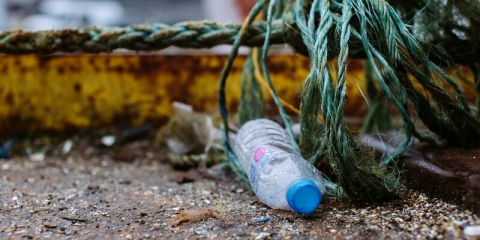

The agreement is part of the University’s Sustainable Transitions to End Plastic Pollution (STEPP) project.
10 December 2020
2 min read
The University of Portsmouth has signed a partnership agreement with a leading university in Bangladesh to help tackle the problem of urban plastic pollution in the global South.
The agreement with Shahjalal University of Science and Technology (SUST) in Sylhet, Bangladesh is part of the University’s Sustainable Transitions to End Plastic Pollution (STEPP) project.
The STEPP project, which also involves Strathmore University in Nairobi, Kenya, draws on contributions from community activists, local governments, businesses and academia in the two cities to raise awareness, explore attitudes and perceptions around plastic waste, through creative methods such as visual arts, music and theatre.

This partnership aligns very well with the twin city agreement Portsmouth has with Sylhet and our own Revolution Plastics initiative.
Professor Steve Fletcher, STEPP project co-leader
The official signing, which took place last week, was overseen by the honourable Vice-Chancellor of Shahjalal University, Professor Farid Uddin Ahmed and University of Portsmouth's Pro Vice-Chancellor Chris Chang.
Professor Steve Fletcher and Dr Cressida Bowyer lead the project, which is funded by Research England QR Global Challenges Research Fund. Professor Fletcher said: “This partnership aligns very well with the twin city agreement Portsmouth has with Sylhet and our own Revolution Plastics initiative. These agreements will allow for an in-country partner, support from a respected academic institution for this and future projects, and opportunities for academics to visit and learn from each other’s institutions.
“Hopefully, it will not only be mutually beneficial for this project but also for future collaborative opportunities on a national and global scale.”
Colleagues at SUST and Strathmore University are contributing to data collection and mapping exercises, and reviewing circular economy and sustainability education within their country’s curriculum.
The STEPP project is also set to roll out a series of creative workshops to exchange expertise in visual arts, digital storytelling, street theatre and puppetry. Additionally, a four-part series of seminars begins this week, in which partners will present their expertise and share local developments already taking place, in order to inform the project.
Towards the end of the project next July, STEPP will co-develop policy recommendations from the outcomes of the project.
